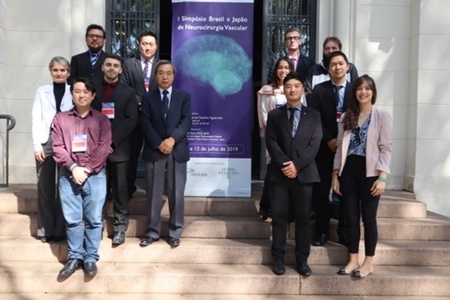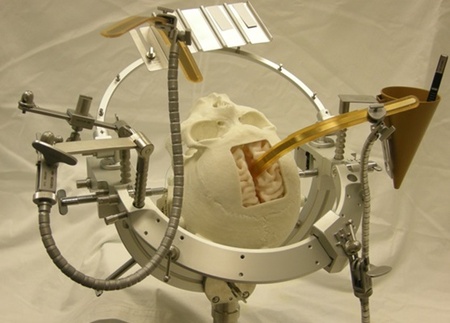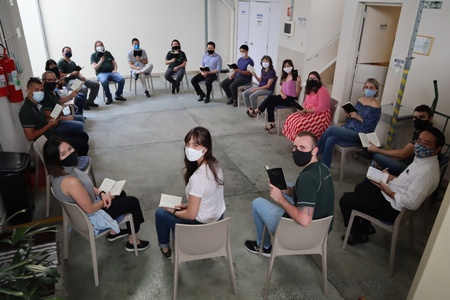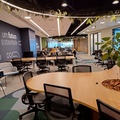In this 11th installment, we spoke with Katsuhide Itagaki (75, Hokkaido), president of Panamedical Sistema. In Brazil, it is not uncommon for companies, large or small, to open one after another, only to close within a few years, or even within a year. Among its peers, Panamedical Sistema is not surprised by the "appearance and disappearance" of its competitors, and has been unearthing unknown Japanese technology in the medical field for 33 years, exploring what it can do for Brazilian patients.
A decision made by an expatriate
Itagaki, CEO of Panamedical Sistema, joined Meiji Seika Kaisha's overseas division 10 years ago, and in 1981, he received an offer to set up a South American office and went to Brazil to establish a local subsidiary as the company's first representative. He was involved in selling medical equipment while working in Japan, but was transferred to the pharmaceutical division and worked on pharmaceutical licensing while stationed there. As licensing work takes time, he began selling medical equipment as a side job, and somehow he began to feel a strong desire to try running his own business.
He had been living as a resident expatriate in São Paulo for 10 years, but he had a vague desire to become independent. At the time, there was a boom in Brazilian businesses travelling to Japan, and this sparked his feeling that "if Brazilians are doing it, I can start a business in Brazil too."
After thinking about it all night long about whether I should resign, my boss told me, "Starting a business is harder than becoming an executive at a company," and my heart immediately lightened, so I decided to quit.
What is common in Japan leads to differentiation in Brazil
Currently, the company imports and sells from Japan drill bits used in craniotomy, clips used to block blood flow in the neck and surrounding blood vessels of cerebral aneurysms, and fetal monitoring devices. In the midst of competing with large international companies, the company's motto is to provide high-quality products and services, and it says that the secret to its continued business, even though it was not immediately recognized, is "to continue working diligently, honestly, and steadily, just as the image of Japanese immigrants had."
For example, when various troubles or complaints occur, there are fewer companies in Brazil than you would imagine that provide the kind of sincere and detailed service that is commonplace in Japan. Within the company, we share a common set of values that place emphasis on the lives of patients, and we always make decisions and take action from the patient's perspective, treating them as our own family and relatives, rather than as a supplier, which is appreciated and relied upon by customers.
Because the organization is not large, they are able to respond quickly and flexibly, and instead of following the commission system that is common in Brazil, their sales staff are expected to treat everything as a job and approach their tasks with the utmost care. This allows them to respond in a way that is different from that of other companies' sales teams, and this has also led to business success.
Its customers are doctors and medical institutions, and while only about 10% are Japanese, to this day it has been helped in many situations by the many excellent Japanese doctors.

Natural childbirth awareness seminars recognized as qualifications for nursing exams
One of the businesses the company is working on is holding seminars on fetal monitoring monitors. At the time the company was founded, about 90% of births in urban areas in Brazil were by Caesarean section, so the company has been interested in raising awareness of natural childbirth and has held seminars on fetal monitoring monitors four times a year, a total of 85 times, and has trained more than 2,000 professionals.
This initiative to promote natural childbirth has been widely recognized by obstetric medical institutions, and it is now even recognized as a qualification for taking the exam to become a nurse in a top obstetrician in Sao Paulo. In order to bring attention to natural childbirth as mainstream in Japan, we aim to hold the 100th seminar.
Representative Itagaki has belonged to the Brazilian Management Philosophy Institute (formerly the Brazilian Seiwa Juku) and regularly exchanges ideas with members engaged in business activities in Brazil. He was thoroughly taught by Kazuo Inamori to serve others as "altruism," and was fascinated by his words that this is a way of life that follows the "will of the universe." In accordance with his teachings, he plans to continue working to improve the medical services field in Brazil, aiming to remain active throughout his life.
|
Overview of PanaMedical Sistema |
*This article is reprinted from Brasil Nippou (September 2, 2023).
© 2024 Tomoko Oura








